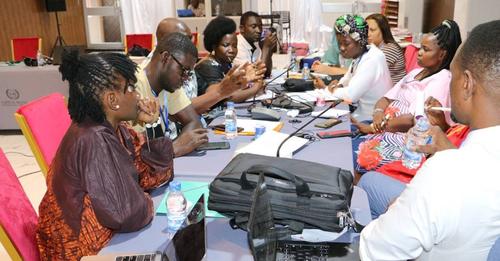African journalists have been called upon to share knowledge as reality about water and sanitation during a workshop organized by African Water Association (AFWA) aimed at capacity building in Abidjan, Côte d’Ivoire on Feb. 18, The New Times, Rwanda’s leading daily newspaper, reported the following day.
Gilles Djagoun, the senior water program coordinator at AFWA, stressed that more information and knowledge still need to be imparted to journalists through professional networks, symposiums, and training.
He believes that AfWA should establish mentorship programs, record the impacts made, and develop plans to boost water plans.
“I have no doubt that the gap of lack of access to clean water should be closed and it’s high time African leaders enforced policies to curb dirty water as this will lower the spread of waterborne diseases. Which is why journalists need to continue with sensitization,” he said.
One-quarter of the world’s population – two billion people lack safe drinking water and half – 3.6 billion people lack safe sanitation. The damage to human capital is staggering. In 2019, diarrheal diseases were ranked the eighth-greatest cause of death in the world, claiming 1.5 million lives worldwide, mainly due to poor water and sanitation.
The burden is particularly harsh on women and girls. For example, lack of personal hygiene facilities in schools leads to school absenteeism, with lifelong repercussions from learning losses, according to an article by the World Bank.
AfWA leaders stressed the need for safe drinking water and highlighted the triggers of water pollution, especially in lakes and rivers, due to use of pesticides in fishing, which is illegal. Fishermen have left the lives of many people in danger. In order for everyone to have clean water, water treatment, filtration and disinfection to kill microbes were emphasized as positive mechanisms.
AfWA encouraged drinking portable water as it presents no risks, however, chemicals like chlorine were warned to use in high measures, but rather maintained at five milliliters as they impose some dangers, noting that high chlorine levels could lower the pH level of the water, thus turning acidic.
Journalists were also urged to report illegal water access and unqualified well constructions because they connect sewage to clean water, hence contaminating it.



